
Graduate Interview: Februalin Teaching in Uzbekistan
In this article, we’ve had a chat with Februalin from the Philippines, an accomplished English teacher currently teaching in Uzbekistan. She has shared with us her best insights into what life as an ESL teacher in Uzbekistan can look like.
Pursuing an English teaching career abroad provides you with the opportunity to travel the world, experience different cultures and languages, and make memories that last a lifetime. It’s a great opportunity for teachers who wish to expand their horizons and embark on a new adventure.
Februalin from the Philippines was craving change and wanted the chance to explore new cultures. Her journey led her to Uzbekistan, where she has embraced the challenges and rewards of teaching in a new environment.
Join us as we explore Februalin’s best tips and insights on why you should consider Uzbekistan as your next ESL teaching destination!
About Februalin
Februalin is an experienced English teacher from the Philippines. After completing her 120-hour TESOL/TEFL certification course at World TESOL Academy, she decided to set out on a new adventure teaching English in Uzbekistan.
Name: Februalin Briones
Nationality: Filipino
Profession: English language teacher
Experience: 18+ years
Since launching her teaching career in Uzbekistan, Februalin has embraced the local culture and adapted her teaching methods to her students’ needs. Looking ahead, she plans to continue developing innovative teaching methods, create more student-centered activities, and design collaborative learning programs to further enrich her students’ educational experience in Uzbekistan.
Februalin’s interview:
💬 How long have you been teaching English, and how did you start?
“I’ve been teaching English formally since 2006. I started by giving English lessons to professionals and company leaders in East Asia.”
💬 What made you decide to pursue an English teaching career?
“I think it’s the opportunity to share what I know and what I love which is languages and communication with people from different cultures and just the thrill of being able to explore different subject matters and share creative ideas with lifelong learners while also helping them grow both personally and professionally.”
💬 Where do you currently teach, and how do you find the job?
“I’m currently teaching in Tashkent, Uzbekistan. I found this teaching opportunity through World TESOL Academy’s recruitment partnership with the Ministry of Preschool and School Education of the Republic of Uzbekistan.”
💬 What is the job like?
“The job is a lot like learning how to flow in the stream of cultural nuances and differences because in Uzbekistan the students and the teachers have their own ways of thinking about learning, English and communication. The local teachers also have their own traditional way of teaching and so my job is a combination of helping students and teachers to expand their worldviews and look at teaching, learning, language, English and communication from a whole new perspective.
What I find particularly interesting about my job is basically the freedom to actually integrate different beliefs and values and try new things that could bridge cultural gaps and help local teachers pass the baton to students by making the classroom discussion more student-centered. I find it very fulfilling when I get to challenge students and teachers to think differently and let go of limitations that they have about themselves, about teaching, learning or classroom instruction.”
💬 Have you taught in any other destinations before Uzbekistan?
“Before coming to Uzbekistan, I taught English to various nationalities residing in the Philippines as well as remotely to multinational company leaders of European countries.”
💬 What made you choose Uzbekistan as your next teaching destination?
“Just the encouragement from people that I watched on YouTube and after doing my research I learned a lot about their culture and how friendly the people are. Also, the fact that Uzbekistan has all four seasons and just moderately cold winters was a significant factor. Having grown up in a tropical country like the Philippines, I was really excited to experience snow for the first time without subjecting myself to extreme cold.
I think the fact that Uzbek people love their culture and that they are rich in artistry was very enticing too. Not to mention that the prospect of introducing change to their pedagogy was a really strong motivator for me being a peacemaking language developer, learning/engagement/systems designer and reform programmer.”
💬 How does Uzbekistan compare to your previous experiences of working abroad?
“I think the difference is that in Uzbekistan the students are more full of wonder and they value personal connection and authentic presence more highly than academic prowess. They are pretty much in love with life and I think what they really care most about are things that actually give joy and warmth to people.
When I’m teaching them, it’s very important that I really connect with my heart. I focus more on what gives me joy and on what is wonderful and interesting about the opportunities that come our way, or the things we can explore together, rather than on what we need to perfect or get right.”
“In many ways it’s an invitation to use my intuition or higher consciousness and be more aware of real-life lessons. I think it challenges me to be more of a holistic teacher though it can be tricky when we are also teaching students for a test as it can create some conflict of interest.
Part of my job therefore is to explore how to balance the need to teach the content and the importance of creating real-life contexts where taking risks and making mistakes are not only welcome but also encouraged.”
💬 What kind of teaching qualifications do you possess?
“I have a postgraduate certificate in education, university credits in teaching English as a second or foreign language and TESOL/TEFL certification from World TESOL Academy. In addition to teaching, I also have a background in Neuro Linguistic Programming and certificates in professional coaching.”
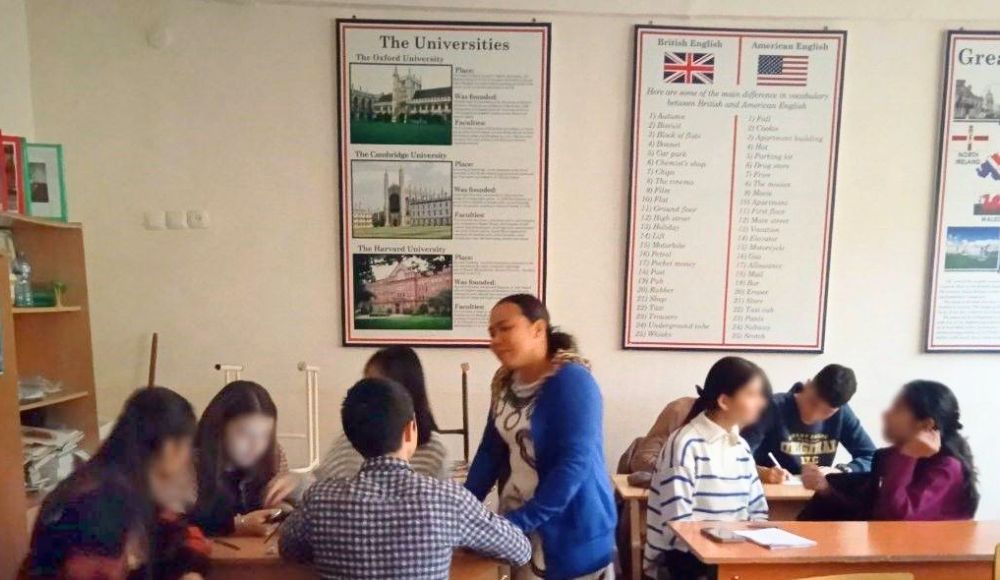
💬 Is there something from your TESOL/TEFL course that you’ve found to be useful when teaching in Uzbekistan?
“My teacher training gave me a lot of things to apply and consider when teaching English as a second language. One of them of course is the importance of promoting intrinsic motivation and creating challenges that engage students of various learning styles. Group dynamics and considerations on sitting arrangements have also played a vital role in my teaching effectiveness. I also found the sections on probing questions and giving feedback invaluable in every lesson.”
💬 Would you recommend others to pursue English teaching certifications like TESOL/TEFL?
“I’d definitely recommend pursuing English teaching certifications like a 120-hour TESOL/TEFL certification because they help boost our competitiveness and readiness on the ESL job market.“
Want to start your teaching career? Get TESOL/TEFL certified:
To teach English in Uzbekistan or elsewhere, you’ll need to have an accredited and recognized TESOL/TEFL certificate.
With World TESOL Academy’s award-winning 120-hour TESOL/TEFL course you’ll develop the necessary skills needed to launch your teaching career.
.
💬 Could you tell us a little about your first week after arriving in Uzbekistan?
“Our first week of arriving in Uzbekistan was filled with so much anticipation. Right from the airplane in Malaysia, we noticed how friendly people from Uzbekistan can be. The airplane passengers who mostly spoke Uzbek were greeting just about anyone they see like they had all known each other their whole lives.
We landed in Uzbekistan, everyone in the plane started clapping as if a theatrical play just ended. We were picked up at the airport by the school’s head teacher who was accompanied by a local translator. They took us right away to a nice cafe where we got to eat some good food together. They had already prepared our accommodation so we were able to rest really well during our first night in the country.
“Another thing I remember about my first week in Uzbekistan is a time when I met other teachers in our teachers’ room. It was nice to see their friendly faces although I didn’t know a word to say in their local language. So while standing in the teachers’ room I noticed everyone was kind of looking at me, very eager to know something.
One local teacher then laughed and told me that the teachers were asking him if I wasn’t feeling too cold. Then I realized the fact that I was only wearing a knee-high dress with no tights was something strange. It was a mostly cold autumn and my shoes didn’t really cover my feet well either. Being a Filipina who grew up in a tropical climate, it was one of my first realizations about how my life would change in Uzbekistan.”
💬 Could you give us a glimpse of what a typical workday looks like for you?
“My typical work week consists of five days of work, usually five classes a day. Each class is about 45 minutes long. There are times when I teach students and times when I communicate with teachers to enhance student learning. During holidays, I may also conduct master classes for the local teachers.
The types of classes that I teach consist of mostly secondary students. The classroom culture is pretty conservative and can often be teacher-centered. My hope is to plant seeds of constructivist and progressive, student-centered approaches to education by cultivating a growth mindset and modeling metacognition, teamplay and co-creation.
One important insight I’ve gained in my teaching experience in Uzbekistan is how invaluable giving feedback is as well as the importance of praising students’ sincere efforts, positive attitude, teamwork and learning process more than their results in order to encourage everyone to take risks, get out of their comfort zone and practice servant leadership or cooperative learning, which is something they had struggled with all their school lives.“
💬 What’s the best thing about living and working as a teacher in Uzbekistan?
“The best thing about living and working as a teacher in Uzbekistan is just connecting with the people. I think it’s very eye-opening whenever I sit in a classroom and just look around and see everyone’s face, because it makes me understand more deeply why the students are attending school. They’re there to make friends. They’re there to survive all the stress and pressures of life with the help of the friendly people and the smiles they see around them.
It feels so fulfilling to explore their hidden talents and secret desires for learning and connecting. When I first met them, they didn’t immediately show great talents but later on I started experiencing moments where I felt a deep sense of joy just seeing even the shy ones get out of their comfort zone, take risks and express themselves in creative ways.”
💬 How do you maintain your work-life balance while living and working in Uzbekistan?
“We like going to parks and on weekends we also go to a Christian church. Thankfully, Uzbekistan is a free country. We like to try new food and meet both locals and foreigners as well as our fellow Filipinos in Tashkent. Just being around people from time to time helps us actually unwind and feel more alive and connected.
My husband goes to the gym with other Filipinos. I myself have finally fulfilled my dream of practicing Improv Comedy for the first time where I met some wonderful expats while learning to hone my sense of humor. I think there are lots of other things that we can do that we have yet to try here in Uzbekistan and we are looking forward to enjoying new activities and meeting more people.“
💬 Do you have any tips for teachers who wish to start teaching in Uzbekistan?
“I think the government of Uzbekistan is still hiring many foreign teachers today. I would suggest they check out the official website or maybe their Facebook page for instructions on how to apply. Once they are hired by the Ministry of Education, they don’t really have to worry too much, because the Ministry of Education will take care of the visa and the local paperwork.
Successful applicants can let the Ministry of Education know whether they are coming alone or with a family so they have a better chance of getting a more spacious accommodation provided that considerations for accommodation are the same next school year.
In terms of setting up a bank account and getting a phone number or residence registration, the school will help them with everything, but they should ask relevant questions to clarify everything whenever possible. Some good lip balm, moisturizing lotion and at least a couple of notebooks will also help a lot here.”
💬 Is there something you wish you knew about teaching in Uzbekistan before going there?
“One thing I wish I knew before coming here is that a lot of the work of a foreign teacher in Uzbekistan has to do with creating or finding new pathways for collaborating with local teachers who are working with us in the classrooms. Since they’re very busy, it can be tricky to actually find the time to plan lessons with them.
It’s important that you take note of everything you observe and also create some structure and framework that could work for you, the local teachers and the students. That way, you can easily adapt or adjust with the local teachers’ ideas or prepared activities.
I think some parts of our teaching here involve creating cooperative learning experiences and some involve allowing local teachers to also have their own predetermined activities in the class. We are not the only ones who can do it. Instead, we can actually collaborate with the teachers and sometimes it requires a lot of flexibility and intuitiveness to actually sense what can be created in the present moment.
Teaching in Uzbekistan requires a lot of mindfulness or being present in the moment because that’s the only way you can actually respond to the teachers’ thoughtful intentions and the students’ ability to contribute to the learning experience. I think it’s important for teachers coming here to be meditative, mindful, fully present, and someone who is very reflective. It’s something that can be done much more easily with the help of journaling.“
💬 In which direction do you see your teaching career heading?
“I’m not quite sure but I see myself creating or designing more lessons, collaborative activities, teamplay and communicative programs. I might do more instructional game and engagement design roles. I’m also looking into doing innovative systems design or other training program development.“
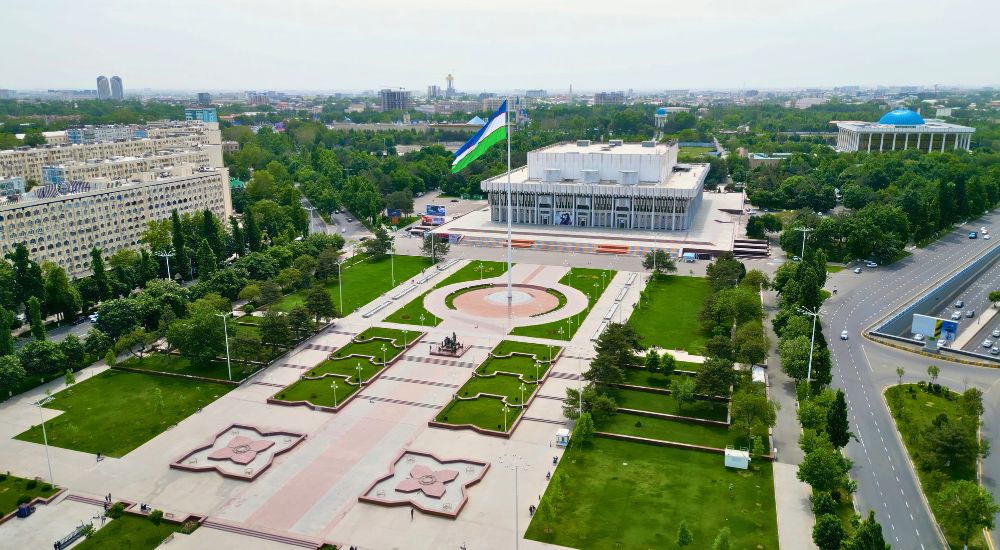
Final thoughts – Teaching in Uzbekistan
Februalin’s journey in Uzbekistan is a testament to the profound impact that dedicated and innovative teaching can have on students. Her experiences offer valuable lessons for anyone considering exploring an ESL teaching career abroad. Opportunities like those in Uzbekistan not only allow you to share your knowledge and make a significant difference in students’ lives, but they also allow you to learn and grow from the diverse cultures and perspectives you encounter.
Whether you’re looking to start a new career or embark on a personal journey of discovery and development, there are countless possibilities waiting for you with the right qualifications and a passion for teaching.
If you’ve been inspired by her story and wish to embark on your own teaching adventure, consider getting TESOL/TEFL certified and exploring the opportunities waiting for you in Uzbekistan and beyond.

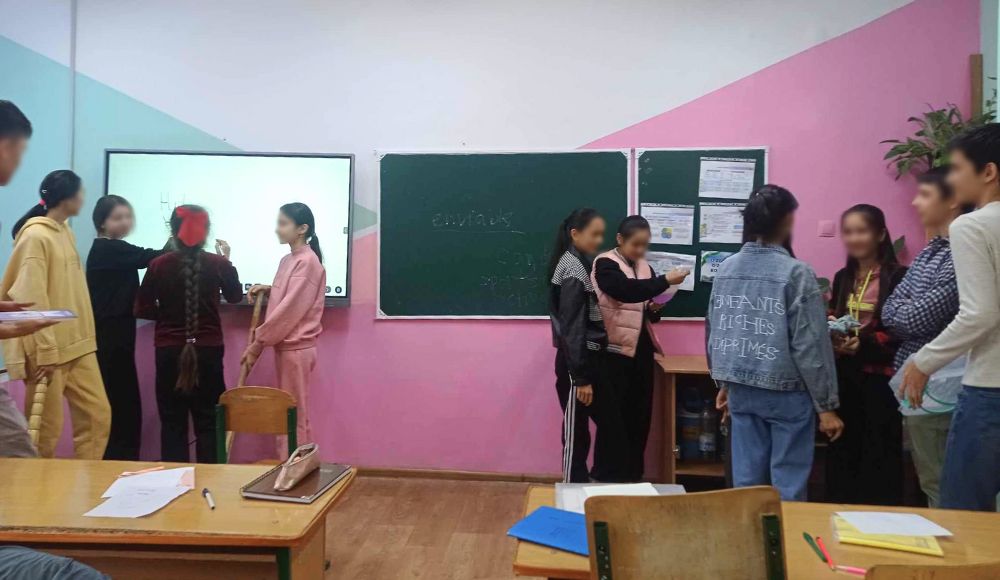
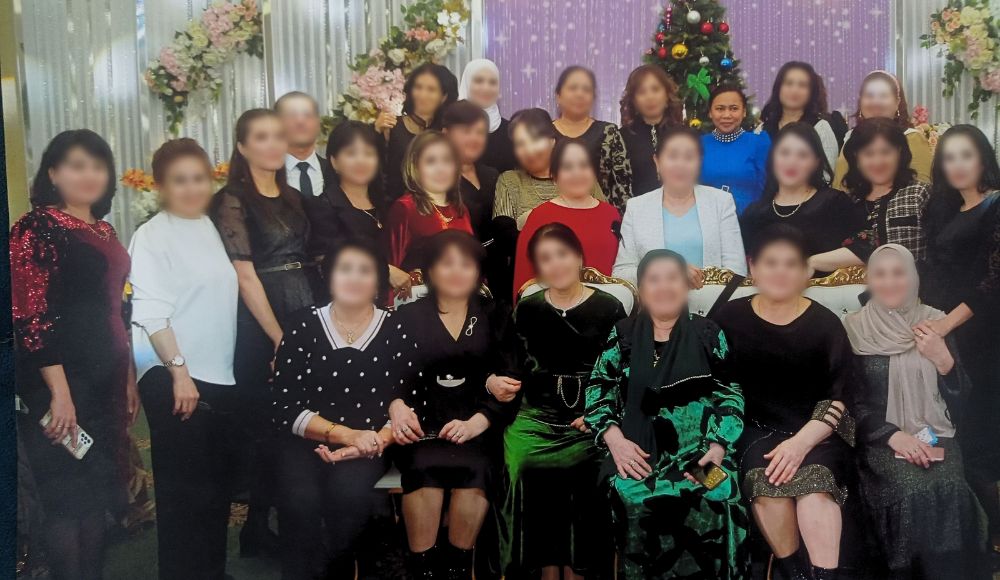
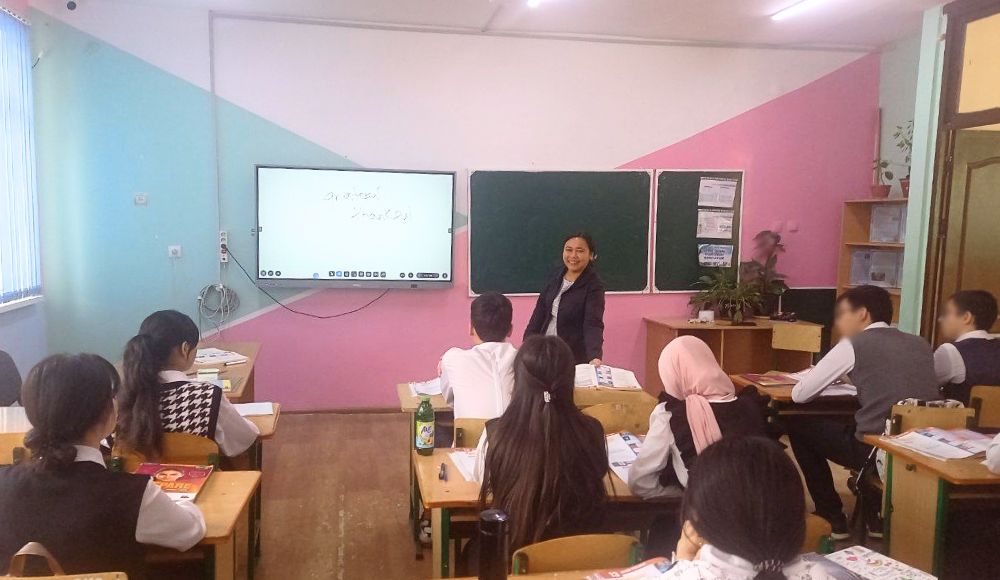







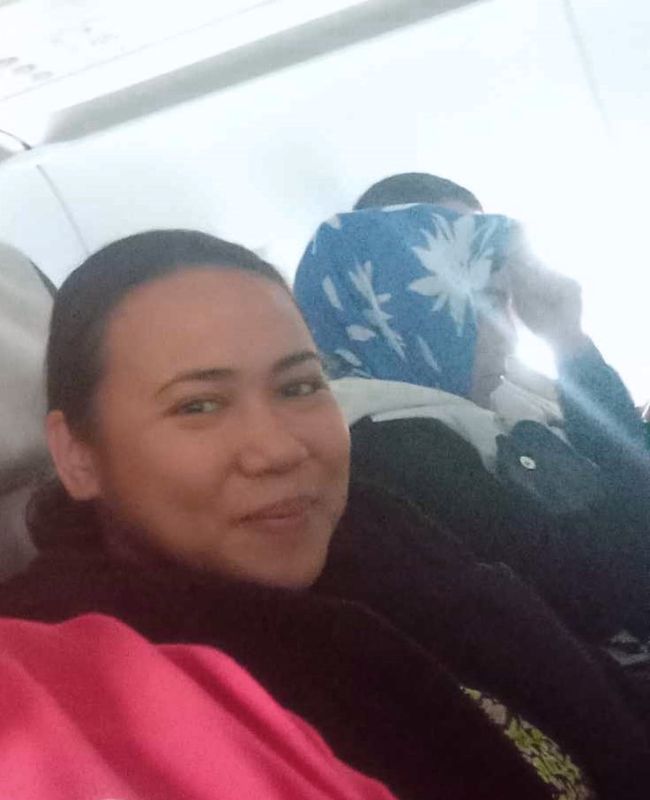


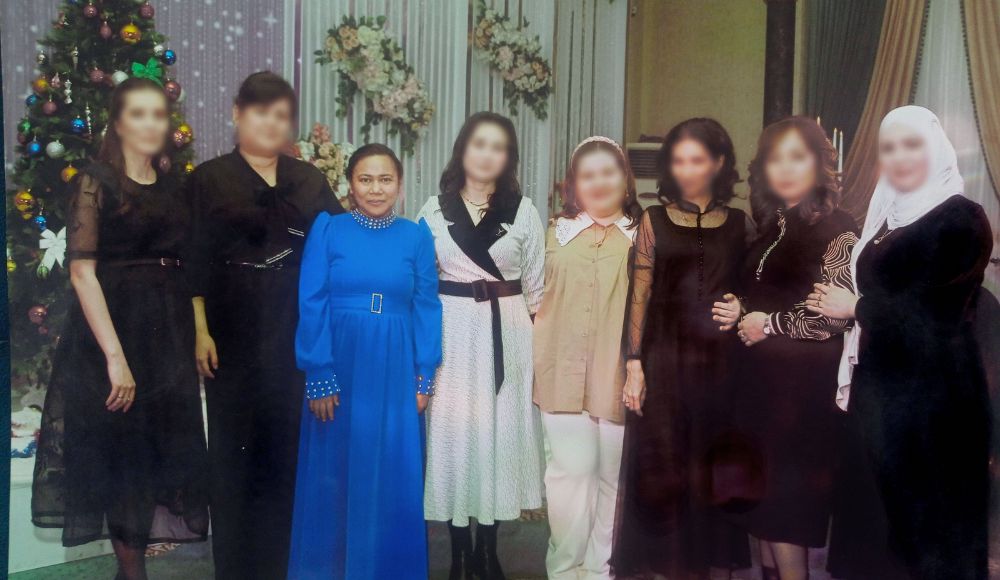

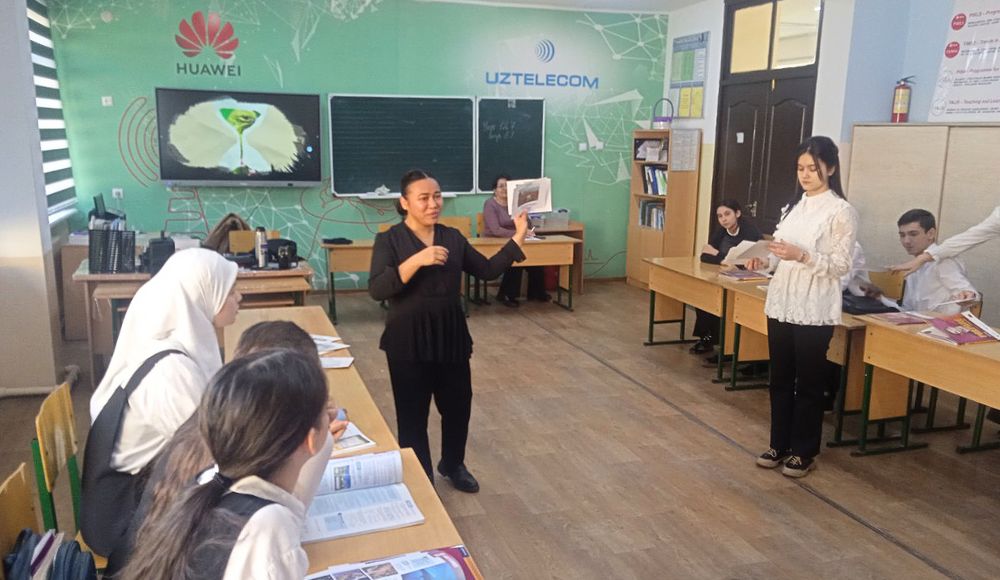





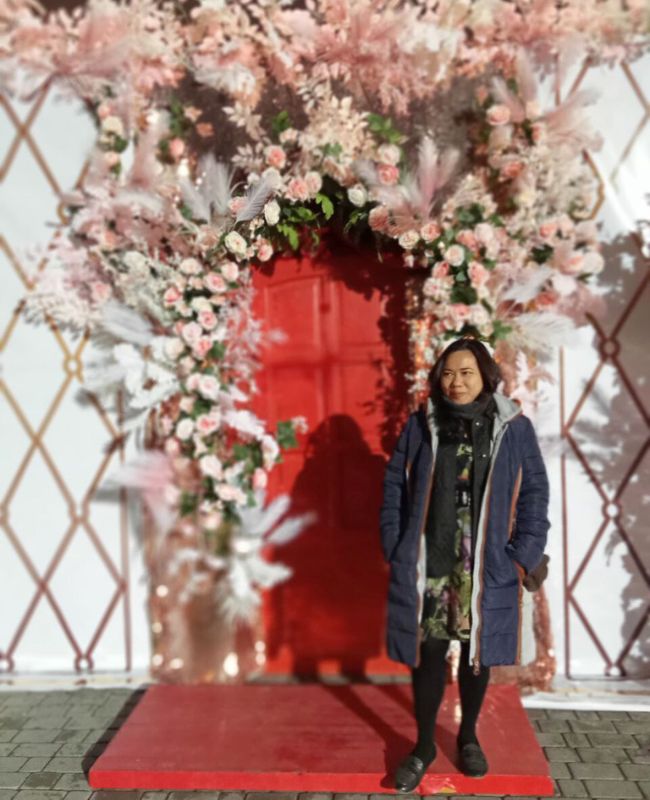
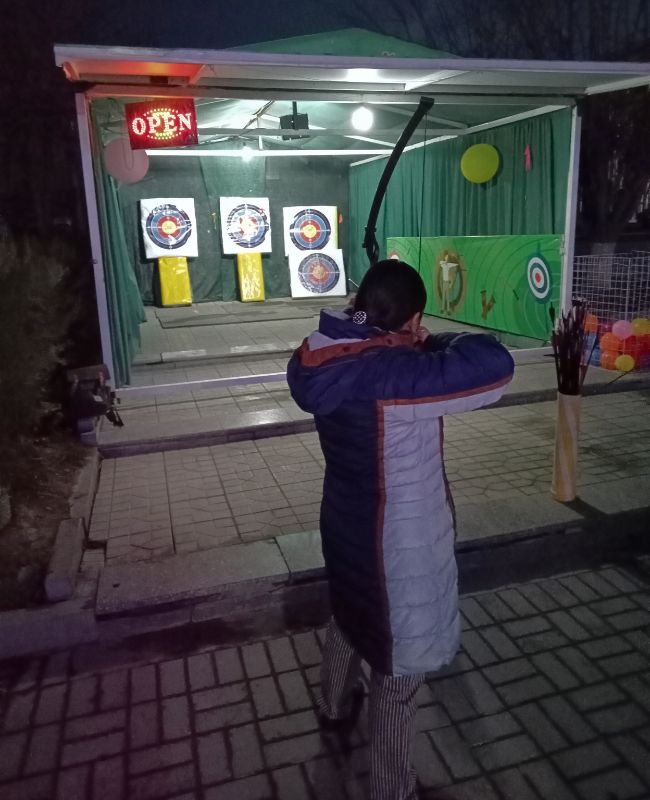





Inspiring!!! ~ Thank you 🙏
Great indeed